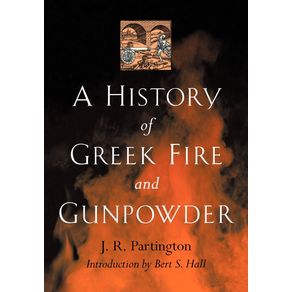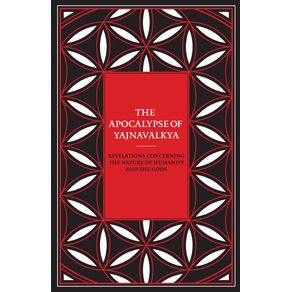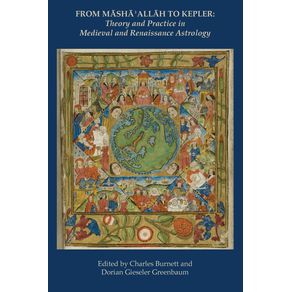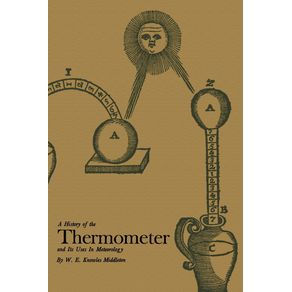| Origem | Literatura Estrangeira |
|---|---|
| Quantidade de Páginas | 748 |
| Acabamento | Capa Dura |
| Autores | Hamma Mirwaisi |
| Idioma | Inglês |
| Edição | 0 |
| Selo | Hamma Mirwaisi |
 Os generais de Hitler
Os generais de Hitler
Companhia das Letras
R$ 149,90 ou até 2x sem juros Em busca da riqueza
Em busca da riqueza
Editora Viseu
R$ 47,90 à vista Genealogia Paulistana; Volume 1
Genealogia Paulistana; Volume 1
Legare Street Press
R$ 289,03 ou até 3x sem juros Charles the Great
Charles the Great
Legare Street Press
R$ 246,29 ou até 3x sem juros As Saudades Da Terra
As Saudades Da Terra
Legare Street Press
R$ 320,98 ou até 3x sem juros Radiation Therapy for Sarcomas and Skin Cancers
Radiation Therapy for Sarcomas and Skin Cancers
Springer Nature B.V.
R$ 338,74 ou até 3x sem juros Teoría General De La Urbanización, Y Aplicación De Sus Principios Y Doctrinas A La Reforma Y Ensanche De Barcelona, Vol
Teoría General De La Urbanización, Y Aplicación De Sus Principios Y Doctrinas A La Reforma Y Ensanche De Barcelona, Vol
Legare Street Press
R$ 354,24 ou até 3x sem juros Vita del cavalier Gio. Lorenzo Bernino
Vita del cavalier Gio. Lorenzo Bernino
Legare Street Press
R$ 166,45 ou até 3x sem juros Léglise Romaine En Face De La Révolution; Volume 1
Léglise Romaine En Face De La Révolution; Volume 1
Legare Street Press
R$ 284,19 ou até 3x sem juros Pandectae Justinianae In Novum Ordinem Digestae...
Pandectae Justinianae In Novum Ordinem Digestae...
Legare Street Press
R$ 394,98 ou até 3x sem juros Early Days of World History
Early Days of World History
Legend Books Sp. z o.o.
R$ 184,03 ou até 3x sem juros On the Spanish Inquisition - Imperium Press (Studies in Reaction)
On the Spanish Inquisition - Imperium Press (Studies in Reaction)
Imperium Press
R$ 176,77 ou até 3x sem juros Writing History, Writing Trauma
Writing History, Writing Trauma
Hopkins Fulfillment Service
R$ 266,28 ou até 3x sem juros A History of Greek Fire and Gunpowder
A History of Greek Fire and Gunpowder
Hopkins Fulfillment Service
R$ 275,43 ou até 3x sem juros Higher Superstition
Higher Superstition
Hopkins Fulfillment Service
R$ 287,65 ou até 3x sem juros A prosperidade da nação
A prosperidade da nação
Editora Viseu
R$ 36,90 à vista Os 100 casos mais inexplicáveis da história
Os 100 casos mais inexplicáveis da história
Editora Viseu
R$ 48,90 à vista Em busca da riqueza
Em busca da riqueza
Editora Viseu
R$ 47,90 à vista Discrete Choice Analysis
Discrete Choice Analysis
Random House
R$ 419,64 ou até 3x sem juros Charles the Great
Charles the Great
Legare Street Press
R$ 246,29 ou até 3x sem juros Radiation Therapy for Sarcomas and Skin Cancers
Radiation Therapy for Sarcomas and Skin Cancers
Springer Nature B.V.
R$ 338,74 ou até 3x sem juros Rape
Rape
Random House
R$ 164,77 ou até 3x sem juros Vita del cavalier Gio. Lorenzo Bernino
Vita del cavalier Gio. Lorenzo Bernino
Legare Street Press
R$ 166,45 ou até 3x sem juros Léglise Romaine En Face De La Révolution; Volume 1
Léglise Romaine En Face De La Révolution; Volume 1
Legare Street Press
R$ 284,19 ou até 3x sem juros Le Taoïsme Et Les Sociétés Secrètes Chinoises
Le Taoïsme Et Les Sociétés Secrètes Chinoises
Legare Street Press
R$ 176,37 ou até 3x sem juros Pandectae Justinianae In Novum Ordinem Digestae...
Pandectae Justinianae In Novum Ordinem Digestae...
Legare Street Press
R$ 394,98 ou até 3x sem juros Notes on the Underground, new edition
Notes on the Underground, new edition
Random House
R$ 194,80 ou até 3x sem juros The Fighting Corsairs
The Fighting Corsairs
Rowman & Littlefield Publishing Group Inc
R$ 144,45 ou até 2x sem juros Writing History, Writing Trauma
Writing History, Writing Trauma
Hopkins Fulfillment Service
R$ 266,28 ou até 3x sem juros The Problem of Freedom
The Problem of Freedom
Hopkins Fulfillment Service
R$ 322,75 ou até 3x sem juros A prosperidade da nação
A prosperidade da nação
Editora Viseu
R$ 36,90 à vista Cinema, imaginário e subjetividade: O filme vidas secas e a construção de diferentes memórias
Cinema, imaginário e subjetividade: O filme vidas secas e a construção de diferentes memórias
Editora Viseu
R$ 51,90 à vista The Apocalypse of Yajnavalkya
The Apocalypse of Yajnavalkya
Library of Cernê
R$ 171,89 ou até 3x sem juros The Price of Freedom
The Price of Freedom
Turner Publishing Company
R$ 163,36 ou até 3x sem juros From Masha Allah to Kepler
From Masha Allah to Kepler
Sophia Centre Press
R$ 195,69 ou até 3x sem juros Kaleidoscope
Kaleidoscope
Earnshaw Books Ltd
R$ 159,88 ou até 3x sem juros Puerto Rico y su historia; investigaciones críticas
Puerto Rico y su historia; investigaciones críticas
Legare Street Press
R$ 199,89 ou até 3x sem juros Teoría General De La Urbanización, Y Aplicación De Sus Principios Y Doctrinas A La Reforma Y Ensanche De Barcelona, Vol
Teoría General De La Urbanización, Y Aplicación De Sus Principios Y Doctrinas A La Reforma Y Ensanche De Barcelona, Vol
Legare Street Press
R$ 354,24 ou até 3x sem juros Vita del cavalier Gio. Lorenzo Bernino
Vita del cavalier Gio. Lorenzo Bernino
Legare Street Press
R$ 166,45 ou até 3x sem juros Le Taoïsme Et Les Sociétés Secrètes Chinoises
Le Taoïsme Et Les Sociétés Secrètes Chinoises
Legare Street Press
R$ 176,37 ou até 3x sem juros Pandectae Justinianae In Novum Ordinem Digestae...
Pandectae Justinianae In Novum Ordinem Digestae...
Legare Street Press
R$ 394,98 ou até 3x sem juros Notes on the Underground, new edition
Notes on the Underground, new edition
Random House
R$ 194,80 ou até 3x sem juros Writing History, Writing Trauma
Writing History, Writing Trauma
Hopkins Fulfillment Service
R$ 266,28 ou até 3x sem juros A History of the Thermometer and Its Use in Meteorology
A History of the Thermometer and Its Use in Meteorology
Hopkins Fulfillment Service
R$ 291,13 ou até 3x sem juros Slave Rebellion in Brazil
Slave Rebellion in Brazil
Hopkins Fulfillment Service
R$ 277,25 ou até 3x sem juros